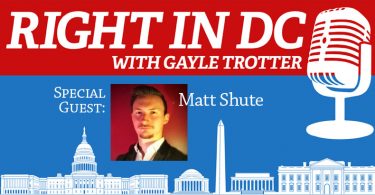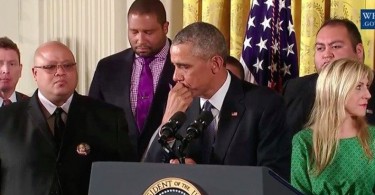The 2016 presidential election offers a new beginning for U.S. foreign policy. Instead of resorting to stunts like Hillary Clinton’s gimmicky red reset button, we have the opportunity for a true reset of international relations.
The alternately passive and reactive U.S. foreign policy of the last three presidential administrations has ill-served U.S. and global interests. In contrast, any serious prospective candidate of either party should articulate a vision for a coherent U.S. strategy in global affairs.
Our next president’s foreign policy should pursue three key objectives. First, protect and promote our interests and those of our allies. Second, rebuild our military and intelligence capabilities. Third, support countries and groups that are moving toward democratic forms of government.
Our primary foreign policy objective must be to serve American interests first. The U.S. military diversion and catastrophe in Haiti and Somalia, respectively, during the 1990s demonstrated the perils of a foreign policy that fails to prioritize our own national interest.
Our military is ill-equipped for humanitarian missions. Failure weakens our resolve and our international standing, and it harms the very countries we seek to help.
These types of half-hearted and unsuccessful interventions divert our attention from true threats on the horizon and diminish our military preparedness. While America slept, al Qaeda steadily prepared in plain sight, with attacks on U.S. embassies in Africa, the U.S.S. Cole, and the World Trade Center in 1993.
As the United States haplessly devoted priorities and resources to nation-building, our enemies steadily plotted our destruction.
We need a foreign policy that promotes the free movement of people, ideas, products and capital, free and fair trade, keeping the sea passages safe and combating threats to Internet commerce. ISIS and Middle East violence threaten all of these. The ripple effects cannot be contained in the Middle East any longer, as Europe’s refugee crisis has shown.
The Syrian conflict forced millions of Syrians to flee their homeland, with little to no prospect of returning.
Having turned tail and prematurely departed Iraq, we must face the reality that we again need boots on the ground both there and in Syria. U.S. forces need favorable rules of engagement, and we need military leaders with clear-eyed recognition that Islamist regimes like Turkey, Saudi Arabia and Iran have loyalties elsewhere than with the United States.
Once the jihadists are eradicated, the region’s good actors could then make a new balance of power in the Middle East.
Any successful candidate for the Oval Office should seek maximum U.S. power to lead in world affairs and to guarantee U.S. security by a generous margin. “No great power can treat foreign policy as a spectator sport and remain a great power,” as Bret Stephens details in his book, “America in Retreat: The New Isolationism and the Coming Global Disorder.”
Under the last three presidencies, the U.S. has reduced its emphasis on, resources for, and moral support of our military and intelligence capabilities.
The Obama administration uses the military to implement social agenda items, prioritizing political correctness over military readiness.
The Bush administration failed to put adequate resources into our military by instead permitting runaway federal spending on priorities such as the Troubled Asset Relief Program (TARP) and increasing federal entitlement programs such as Medicare Part D prescription drug coverage.
The Clinton administration lacked a principled theory of military engagement, ignored growing threats, and used the post-Cold-War peace dividend to push through cuts in the military budget.
The next administration should direct money away from entitlements and towards our military. That administration should invest in attracting and retaining our best military and intelligence personnel and invest in military training, research and development to confront the asymmetric threats we face.
We should pursue public-private partnerships to develop new strategies, responses and weaponry. We should recruit our best and brightest innovators to produce new technologies to retain our edge in modern warfare, from drones to robotics to special-ops technologies. We should revoke and repeal the Obama-Corker agreement with Iran on Inauguration Day 2017.
Finally, the next administration should, at every opportunity, unabashedly and unapologetically promote democracy abroad. No liberal democracy has ever gone to war against another liberal democracy so if we want peace in the world, we should be working toward liberal democracies as all nations at the UN.
In international relations, the fact that democracies do not go to war with each other is “the closest thing we have to an empirical law,” according to professor Jack Levy of Rutgers University. Professor John Owen of the University of Virginia describes the causal underpinnings of the phenomenon in his award-winning book, “Liberal Peace, Liberal War: American Politics and International Security.”
The best course for the future of our international security is to abandon the divisions of left and right, promote U.S. interests, strengthen our military might, and work to disseminate the one system proven to increase international peace and justice – democratic forms of government. The next president must lead the way.
First published in The Hill in October 2015








